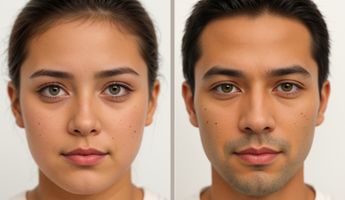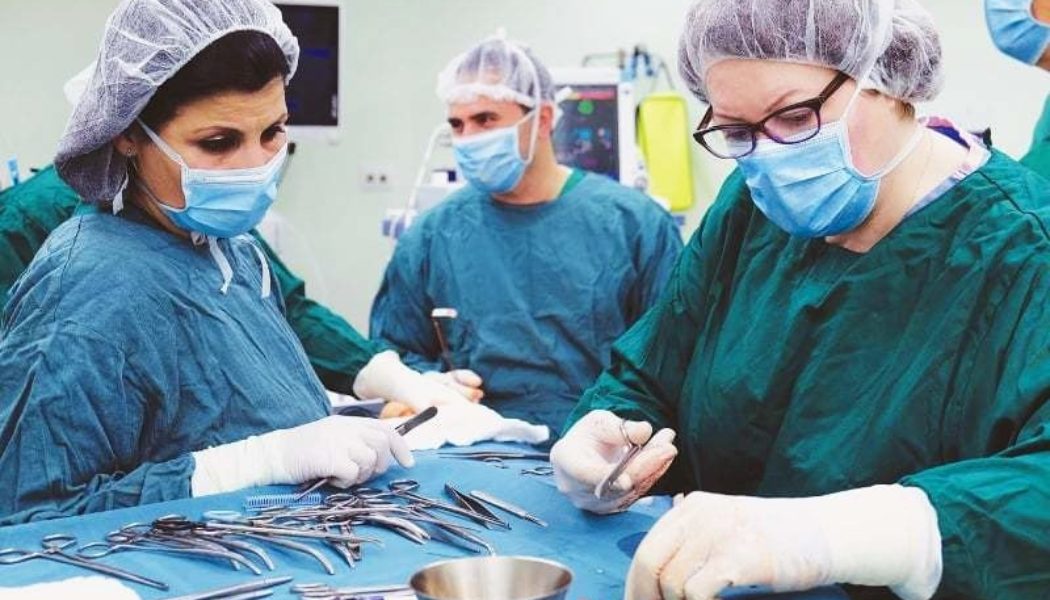Sex Reassignment Surgery (Female To Male) in Hong Kong
Search and Compare the Best Clinics and Doctors at the Lowest Prices for Sex Reassignment Surgery (Female To Male) in Hong Kong

Find the best clinics for Sex Reassignment Surgery (Female To Male) in Hong Kong
No clinics available
Thailand offers the best prices Worldwide
Price: $ 556

- Home
- Hong Kong
Compare Before & After Photos of _procedure_photos.phpSex Reassignment Surgery (Female To Male)


Half-side view


Front view


Half-side view


Front view


Front view


Front view


Front view


Front view
WHY US?
At Medijump, we're making medical easy. You can search, compare, discuss, and book your medical all in one place. We open the door to the best medical providers worldwide, saving you time and energy along the way, and it's all for FREE, no hidden fees, and no price markups guaranteed. So what are you waiting for?

Free

Best Price

Widest Selection

Risk-Free
What you need to know about Sex Reassignment Surgery (Female To Male) in Hong Kong

Some people are born male and some are born female. While there are some people who are transgender, whose gender identity does not match their assigned sex. Sex change surgery, also known as gender reassignment surgery (GRS) or sex reassignment surgery (SRS) is there to help these people. This is a surgical procedure that changes the sex of a person. It changes a transgender person’s physical appearance according to there identified gender. It treats gender dysphoria in these people. This includes both feminization and masculinization surgeries. In masculinization surgery, there are two domains:
- Top surgery
- Bottom surgery.
In top surgery, mastectomy is performed to remove the breasts and give your chest a more male-like contour. Bottom surgery involves increasing the length of the clitoris which is called metoidioplasty, production of a penis, and scrotum which are known as phalloplasty and scrotoplasty respectively, and removal of the uterus that is a hysterectomy. This surgery is not for everyone. A number of things are considered before opting for surgery. However, normal people with assigned gender can also go for this if they want to.
Before the operation, your assigned sex does not correspond to your gender identity. You suffer from gender dysphoria. You feel uncomfortable in your skin. However; after the surgery, you are a person of your desired sex. You are converted from a female to a male.
What is the cost of Sex Reassignment Surgery (Female To Male) in Hong Kong?
Like any intricate healthcare process, the price for undergoing Sex Reassignment Surgery (Female To Male) is not a fixed figure in Hong Kong. The final tally significantly sways due to issues like the patient's comprehensive health status, distinct surgical necessities, and the operating surgeon's level of proficiency. It's vital, too, to factor in the cost of post-procedure care, prescribed medicines, and extra treatments, all of which substantially contribute to the total expenditure.
Moreover, distinct clinics situated in Hong Kong might provide an array of payment structures or offer financial aid alternatives. It's advisable to undertake thorough investigations or reach out to prospective clinics directly to obtain a precise cost prediction.
What does a Sex Reassignment Surgery (Female To Male) Procedure Involve?
Anesthesia is given to ensure that the patient does not suffer from pain during the surgery. Top and bottom surgeries are performed differently.
-
Mastectomy: It is performed in two ways. In one method, an incision is given around the areola and excessive fat and breast tissue are removed through it. The skin is left as it is for a year. It retracts in this period of time. This method leaves prominent scars. In the other method, excess skin is also removed along with the tissue and fat. This leaves fewer scars. After this, male-like the contour of the chest is obtained.
In the other step, female reproductive organs that are present inside your body are removed.
-
Hysterectomy: Total Hysterectomy is the removal of uterus and cervix. Another surgery, bilateral salpingo-oophorectomy (BSO) is performed to remove fallopian tubes. In this way, the entire female reproductive system is eliminated from the body.
After this, procedures for the construction of male reproductive organs begin. They include,
- Metoidioplasty: Androgenic hormones are given to increase the length of the clitoris. Length is increased to almost 1.6 to 2 inches.
- Phalloplasty: It is performed to create a penis or to increase the length of it. It can be done in 4 ways. All of these work on the same principle. A flap of skin is taken from a donor site of the body such as an arm or abdomen to make a penis out if it. It is joined to the urethra. This is the most complicated step of GRS. An erectile prosthesis is inserted into the penis to achieve an erection.
- Scrotoplasty: Scrotum is produced from labia majora and prosthetic testes are inserted into it.
How Long Should I Stay in Hong Kong for a Sex Reassignment Surgery (Female To Male) Procedure?
It is a long procedure involving a number of surgeries. There is top surgery and bottom surgery. Mastectomy takes 2 to 3 hours in the operation theatre. While bottom surgery requires more time. It takes 8 to 10 hours for a female to male GRS. You should plan to stay in the area for at least 14 days after your Procedure, During this duration, your health conditions are monitored regularly and your stitches are removed after 10 to 14 days. You can go home when allowed to by your physician.
What's the Recovery Time for Sex Reassignment Surgery (Female To Male) Procedures in Hong Kong?
You will have to take 2 weeks off work. After 2 weeks, you can start a light activity and can go back to office work. A Patient will need more time to get back to physical work. You can start strenuous activity 4 to 6 weeks after bottom surgery. Pain killers are given in this period to deal with moderate pain. Scars take some time to fade away. It can take years after the surgery to settle both physically and psychologically.
What sort of Aftercare is Required for Sex Reassignment Surgery (Female To Male) Procedures in Hong Kong?
Following points should be considered to look after you post-surgery:
- Go for regular check-ups.
- Take your medicines as and when prescribed by the doctor.
- Live with someone who takes care of you while you recover.
- Abstain from sexual activity till allowed by your doctor.
- Do not take a bath or shower with bandages intact. It can cause infection.
- Avoid strenuous exercise in the early few days after surgery.
- Do not lift heavy objects; it puts pressure on your stitches.
- Avoid excessive movement. Take a rest.
What's the Success Rate of Sex Reassignment Surgery (Female To Male) Procedures in Hong Kong?
The success rate of Sex Reassignment Surgery (Female To Male) within Hong Kong depends on a spectrum of elements. Such factors encompass the proficiency and prior expertise of the surgical unit, the comprehensive health condition of the person, their mental readiness, and compliance with the suggested after-treatment attention. An abundance of research has pointed out that a majority of individuals who choose Sex Reassignment Surgery (Female To Male) acknowledge a marked enhancement in their lifestyle quality, elevated mental health, and a noteworthy contentment level with the physical transformations.
According to a study, 97% of the people who went through this surgery found their results satisfactory. You need to be sure before opting for it, as it is a lifetime decision. GRS is mainly for the treatment of dysphoric and transgender people.
Are there Alternatives to Sex Reassignment Surgery (Female To Male) Procedures in Hong Kong?
The following are some alternatives to sex reassignment surgery:
- Hormone replacement therapy: this therapy aids in changing your secondary sex characteristics according to your desired sex. In the case of female to male sex change, testosterone is given. This induces hair growth and coarseness of voice. It reduces breast growth and changes in fat distribution in your body. It also stops menstruation.
- Altering physical appearance: you can alter your physical appearance, your dressing, your hair, your makeup in accordance with your desired sex. Do regular exercises to build up muscle mass which will make you look like a male.
- Psychological counseling: it will make you handle your personality. Gender reassignment surgery cannot be reversed. Therefore, you should make your decision wisely.
- Cosmetic surgery: it is a wide field covering a number of domains. It can alter your facial features, your body fat, your waist, your stomach, your chest to transform you into your desired gender. You can go for liposuction, mastectomy, Botox, fillers, Rhinoplasty, etc.
All of the methods, mentioned above are not permanent but are helpful. For permanent change, you have to go for sex reassignment surgery.
What Should You Expect Before and After the Procedure
Prior to initiating the Sex Reassignment Surgery (Female To Male), it is necessary to ensure each individual undergoes thorough psychological analysis and counseling. These checks serve to affirm the patient's emotional readiness and ability to cope with the aftermath of the procedure. In addition to mental health evaluations, multiple medical assessments are implemented to inspect their overall health state. Recognizing any pre-existing health issues is of utmost importance as they can potentially impact the result of the surgery. Regularly scheduled consultations with knowledgeable healthcare professionals are fundamental to this process. These meetings will entail in-depth explanations and discussions to help formulate a holistic understanding of the entire procedure and its ensuing effects.
After the execution of the surgical procedure, there's a need for mental readiness for an extensive recovery period. This stage typically demands diligent post-procedure care and major lifestyle adjustments. Surgical recovery isn't typically a swift process - it's a path that entails physical changes and lifestyle adaptations, necessitating a period of adjustment for the patient. The adoption of healthy habits becomes particularly important during this period. Activities like regular physical activity, adhering to a nutritious diet, and incorporating stress-relief practices are proven to carry several benefits. Moreover, in addition to the emphasis on physical recuperation, mental health should also be prioritized equally.
What are Potential Risks of Sex Reassignment Surgery (Female To Male)?
Each surgical procedure comes with inherent risks and potential complications, including Sex Reassignment Surgery (Female To Male). These might encompass general surgical risks such as infection, bleeding, or adverse reactions to anesthetic drugs. Specific to Sex Reassignment Surgery (Female To Male), there may also be healing-related risks, which could result in necrosis or lackluster cosmetic outcomes. Educating oneself about the possible complications of surgical procedures is beneficial for better preparation.
Additionally, extended exposure to hormonal treatment might escalate the risk of cardiovascular ailments or osteoporosis. There could also be mental health concerns such as depression or anxiety, which may spring from society's responses or personal adaptation to a new identity. Frequent consultations with a healthcare professional are essential to keep track of and mitigate any possible risks or complications.
Whilst the information presented here has been accurately sourced and verified by a medical professional for its accuracy, it is still advised to consult with your doctor before pursuing a medical treatment at one of the listed medical providers
No Time?
Tell us what you're looking for and we'll reachout to the top clinics all at once
Enquire Now

Popular Procedures in Hong Kong
Prices Start From $497

Prices Start From $1,552

Prices Start From $500

Prices Start From $1,000

Recommended Medical Centers in Hong Kong for procedures similar to Sex Reassignment Surgery (Female To Male)

- Interpreter services
- Translation service
- Religious facilities
- Medical records transfer
- Medical travel insurance
- Health insurance coordination
- TV in the room
- Safe in the room
- Phone in the room
- Private rooms for patients available

- Interpreter services
- Translation service
- Religious facilities
- Medical records transfer
- Medical travel insurance
- Health insurance coordination
- TV in the room
- Safe in the room
- Phone in the room
- Private rooms for patients available

- Interpreter services
- Translation service
- Religious facilities
- Medical records transfer
- Medical travel insurance
- Health insurance coordination
- TV in the room
- Safe in the room
- Phone in the room
- Private rooms for patients available

- Interpreter services
- Translation service
- Religious facilities
- Medical records transfer
- Medical travel insurance
- Health insurance coordination
- TV in the room
- Safe in the room
- Phone in the room
- Private rooms for patients available
Sex Reassignment Surgery (Female To Male) in and around Hong Kong
About Hong Kong
The former British colony became a special administrative region of China in 1997, when Britain's 99-year lease of the New Territories, north of Hong Kong Island, expired. Hong Kong is governed under the principle of "one country, two systems", under which China has agreed to give the region a high degree of autonomy and to preserve its economic and social systems for 50 years from the date of the handover.
Hong Kong welcomes an ever-increasing number of medical tourists each year, many of which travel for Sex Reassignment Surgery (Female To Male) procedures. Hong Kong is a well-established hub for medical tourism, although it is better known for its quality and cutting-edge procedures than for cost.
Popular Parts of Hong Kong
Hong Kong is a blend of a dynamic cultural landscape with an astonishing skyline, glamorous shopping, as well as one of the world’s top culinary destinations.
- Victoria Peak (The Peak) offers the best view of Hong Kong’s modern skyline. It is the highest point on Hong Kong Island and the most visited spots by tourists. You can ride the tram to the top where you will find the Peak Tower and Peak Galleria. The peak is covered by a large park filled with incredible greenery.
- Big Buddha (Tian Tan Buddha Statue) is located in Lantau Island. It is one of the largest Buddha statues and took 12 years to complete. It is the perfect place for tourists who wish to get away from the hustle and bustle of the city. Surrounded by forest and ocean, the statue gives an incredible view. The best way to reach the Buddha is by riding the Ngong Ping Cable car which will take you on a spectacular ride over the forest.
- Wong Tai Sin Temple is one of the most popular temples in Hong Kong. It was named after the famous monk of yore, Wong Tai Sin. It is said that he has the ability to punish evils, heal the wounded, rescue the dying, and grant whatever is requested. The temple is also known as Sik Sik Yuen and has a traditional Chinese temple style.
- Temple Street Night Market is the best night market for tourists. Starting at 6.00 pm, it is the place to go if you want to taste Hong Kong’s street food. You can also find vendors selling gadgets, trinkets, clothing, household goods, jewelry, and traditional Chinese crafts. The place is brimming with atmosphere and it has served as the backdrop to many movies.
- Hong Kong Disneyland is a wonderful world for any Disney lovers. The park is divided into seven lands: Adventureland, Grizzly Gulch, Main Street, Mystic Point, Fantasy Land, Toy Story Land, and Tomorrowland. Here, you will find various adventures, parades, and musicals. In the evening, you can watch the fireworks over the castle.
- Star Ferry is a beloved icon of the city. It is said that your visit to Hong Kong will never be complete without cruising on the famous ferry. You can see the sparkling landscape of the city while enjoying the refreshing breeze.
Weather and Climate in Hong Kong
Hong Kong’s weather is influenced by the monsoon subtropical climate. The temperature is mostly mild all year round. May to September are the warmest months with an average temperature of 33 °C while mid-December to February are the coldest months with the temperature falling to 10 °C. Spring starts from March and ends in early May and the weather during this season is pleasant with many sunny days, but you can also have foggy, rainy, and stormy days.
The summer in Hong Kong is hot and humid with a perpetual threat of rain showers, thunderstorms, and sometimes even typhoons. Summer lasts for around four months from May to September. With August as the wettest month in the city.
The best time to visit Hong Kong is in the autumn, starting from October to early December when the days are generally sunny and the temperatures range from 22 °C to 28 °C. Winter is the holiday season in the city and the average temperature is around 16 °C to 18 °C but it can drop under 10 °C.
Getting Around in Hong Kong
The main gateway to Hong Kong is the Hong Kong International Airport. The airport is built on reclaimed land on the island of Chek Lap Kok and it serves international destinations to almost every major city in the world, including, Dubai, Amsterdam, Seoul, Canada, Singapore, and Sydney. For affordable travel, budget airlines such as AirAsia, Eastar Jet, and IndiGo are available. There are a wide variety of public transport services to and from the airport. The best options are Airport Express, public buses, and taxis.
To get around Hong Kong, it is best to purchase Tourist Day Tickets which gives you unlimited access to the main MTR and certain Rail lines for HK$65. If you are planning to stay longer in the city, the Octopus Card will be a big help. The card is reusable and can be used for almost every public transportation mode and you can buy the card for HK$150.
One of the fastest and easiest ways to get around the city is by the MTR (Mass Transit Railways) and it is one of the most advanced metro systems on the planet. The MTR operates 11 lines from 06.00 am to 01.00 am. The fare ranges from HK$3.6 to HK$52.6 depending on the distance.
The public bus is a great way to explore Hong Kong, especially the south side of the island and the New Territories. Most buses are double-decker and air-conditioned and it is an affordable way to get around the city and the fares will vary based on the distance traveled. Other public transportation modes such as tram and ferry are also available.
If you need a more flexible way of travel, taxis are easy to find and offer excellent value. There are three types of taxis, the red taxis operate throughout the city except for Lantau Island and the fares start at HK$24. The green taxis only operate in the New Territories and the fares start at HK$20.50. The blue taxis serve Lantau Island and the fares start at HK$19.
Tourist Visas in Hong Kong
Citizens of around 170 countries and territories may visit and stay in Hong Kong without a visa for up to 180 days. Other countries not listed in the visa-free entry such as Albania, Armenia, and Cambodia need to apply and obtain a visa before entering the country. All visitors must have a passport valid for at least one to six months beyond the date of entry to Hong Kong. Visitors can apply for a visa from their nearest Chinese embassy or consulate.
Additional Information
- Local Currency: The official currency is the Hong Kong Dollar. US$1 converts to HK$7.78.
- Money & Payments: Tourists can find ATMs almost everywhere, and most ATMs are linked up to international money systems such as Maestro, Cirrus, and Visa Electron. Credit cards are widely accepted. Tipping is generally not expected and restaurants usually add 10% to 15% service charge to your bill.
- Local Language: Most people in Hong Kong speak Chinese (Cantonese and Mandarin). However, English is also widely spoken since it is one of the government official languages.
- Local Culture and Religion: Many people in Hong Kong either follow Buddhism, Confucianism, or Taoism. Christianity is also one of the major religions in the city. Other religions such as Islam, Sikhism, Hinduism, Judaism, and the Bahá'í Faith are also freely practiced.
- Public Holidays: Hong Kong celebrates major religious holidays such as Lunar New Year, Ching Ming Festival, and Christmas.
Popular Searches
- Plastic Surgery in Thailand
- Dental Implants in Thailand
- Hair Transplant in Thailand
- Breast Augmentation Thailand
- Gastric Sleeve in Thailand
- Gender Reassignment Surgery in Thailand
- Laser Hair Removal in Bangkok
- Botox in Bangkok
- Dermatology in Bangkok
- Breast Augmentation in Bangkok
- Coolsculpting in Bangkok
- Veneers in Turkey
- Hair Transplant in Turkey
- Rhinoplasty in Turkey
- Stem Cell Therapy in Mexico
- Rhinoplasty in Mexico
- Liposuction in Mexico
- Coolsculpting in Tijuana
- Rhinoplasty in Korea
- Scar Removal in Korea
- Gastric Sleeve in Turkey
- Bone Marrow Transplant in India
- Invisalign in Malaysia
- Plastic Surgery in the Dominican Republic
- Tummy Tuck in the Dominican Republic
- Plastic and Cosmetic Surgery in Poland
- Rhinoplasty in Poland
- Hair Implant in Poland
- Dental Implants in Poland
- IVF in Turkey